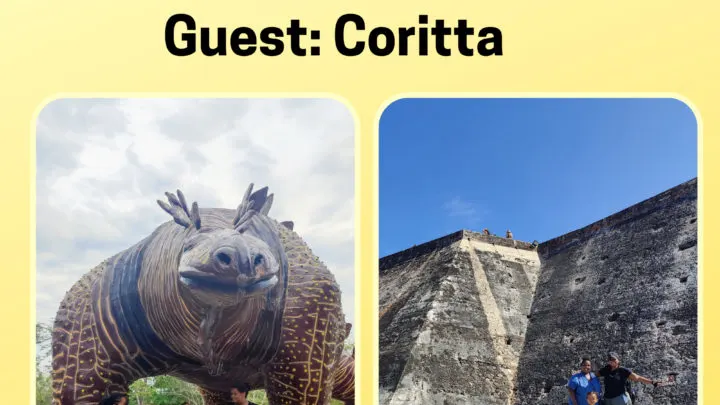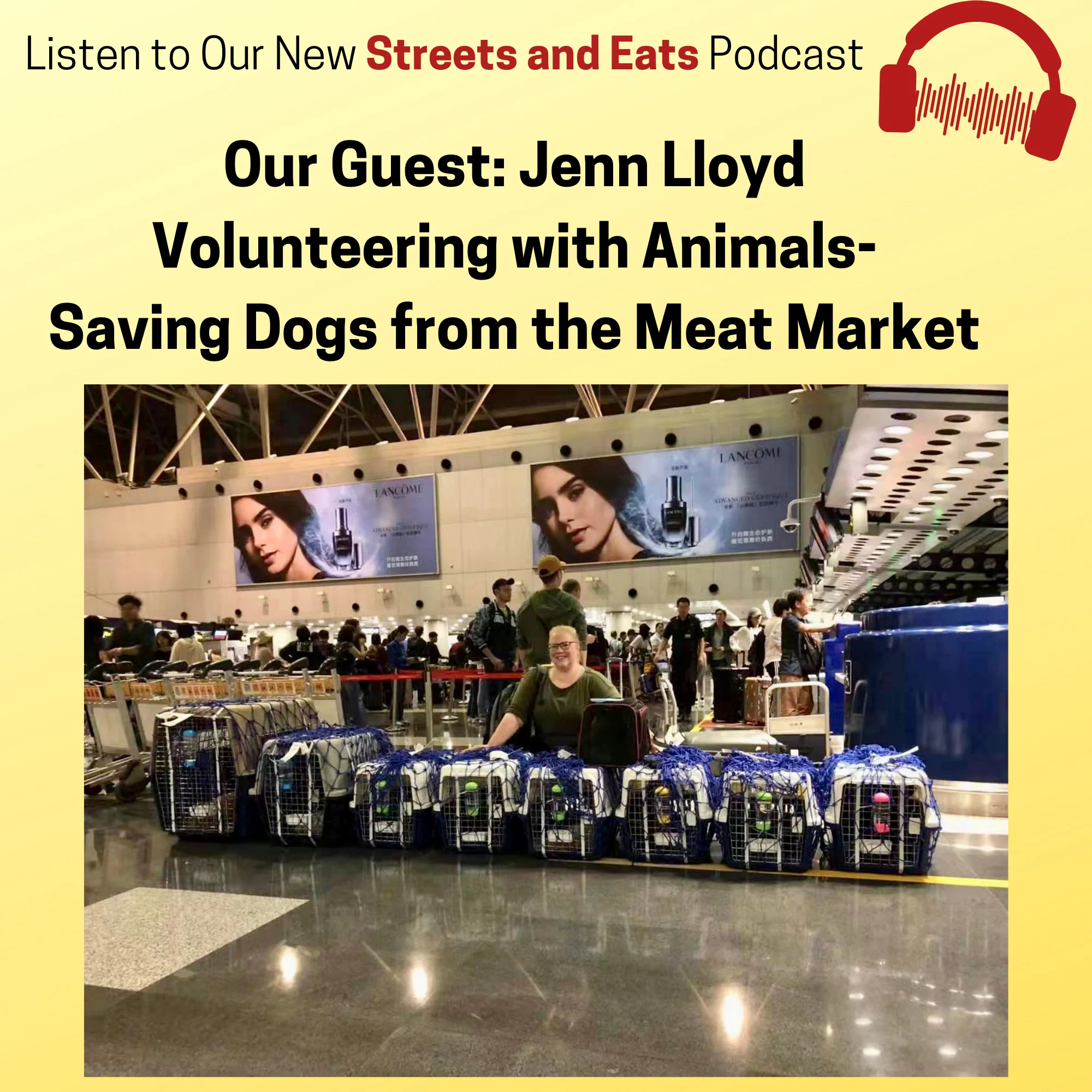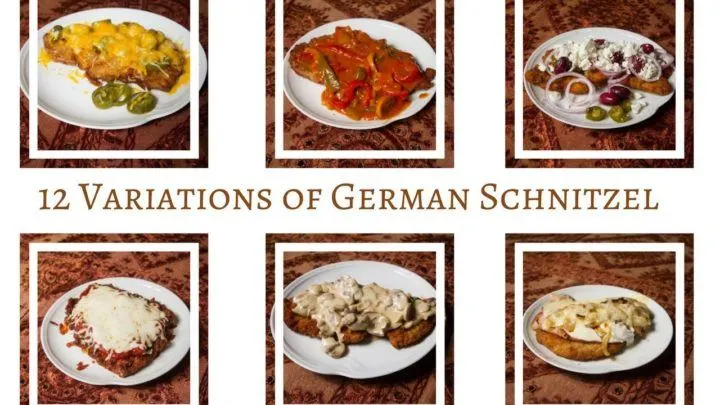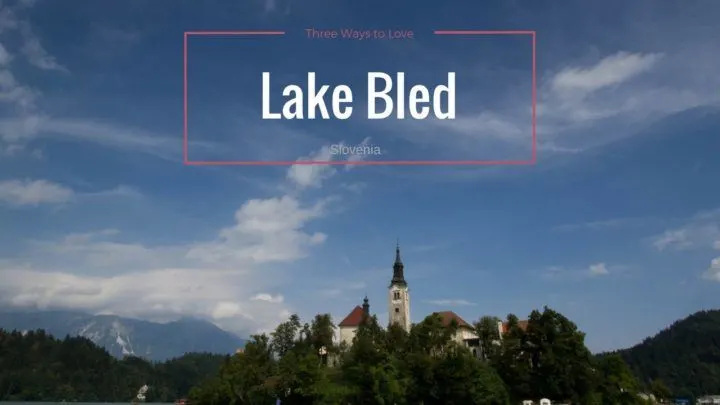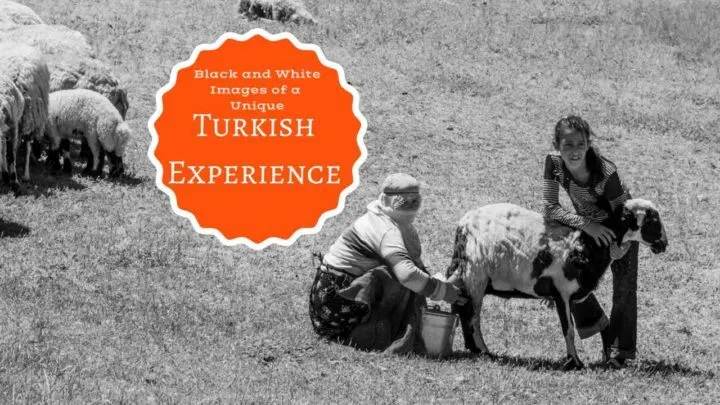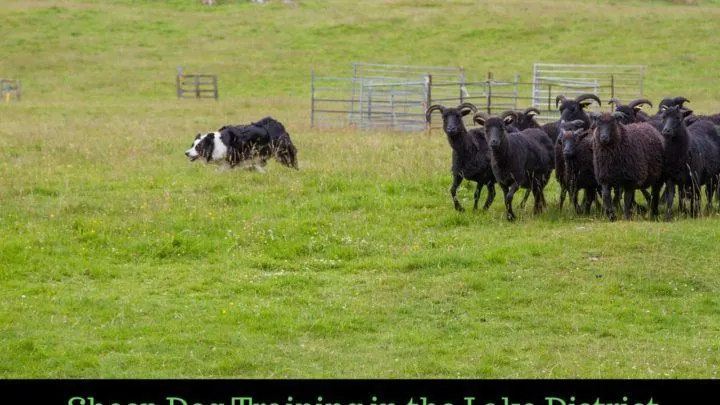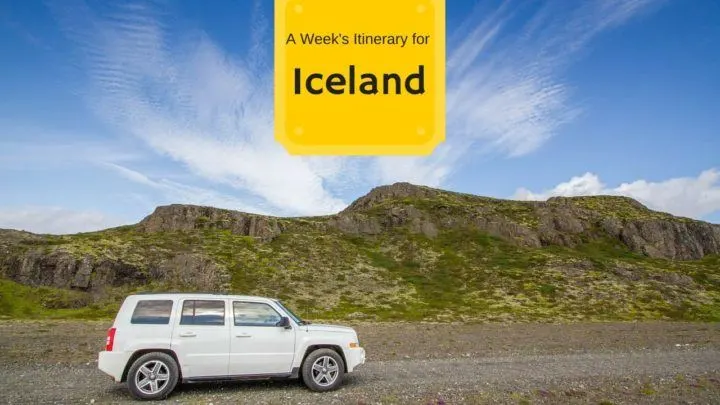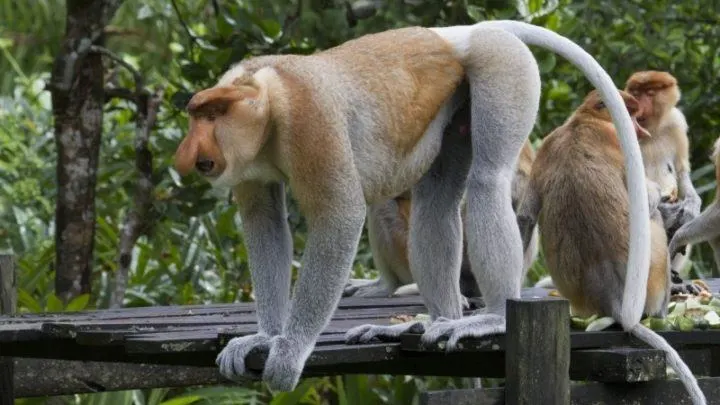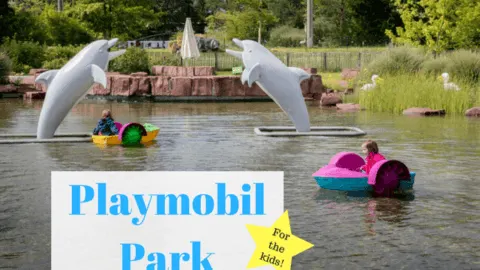In this podcast Amanda defines “thoughtful” travel for us and gives plenty of examples. How can you give back when you are traveling? It really makes you think!
Or you can always subscribe to one of these:
Apple Podcasts
Google Podcasts
Spotify
Amazon Music

Show Notes:
00:56 – What is “Thoughtful Travel”?
05:40 – Thoughtful travel to Denmark
13:01 – Travel evolution
19:40 – Living in Osaka
24:47 – Learning the rules in Germany
31:19 – Deep dive research
41:03 – Understanding others through travel
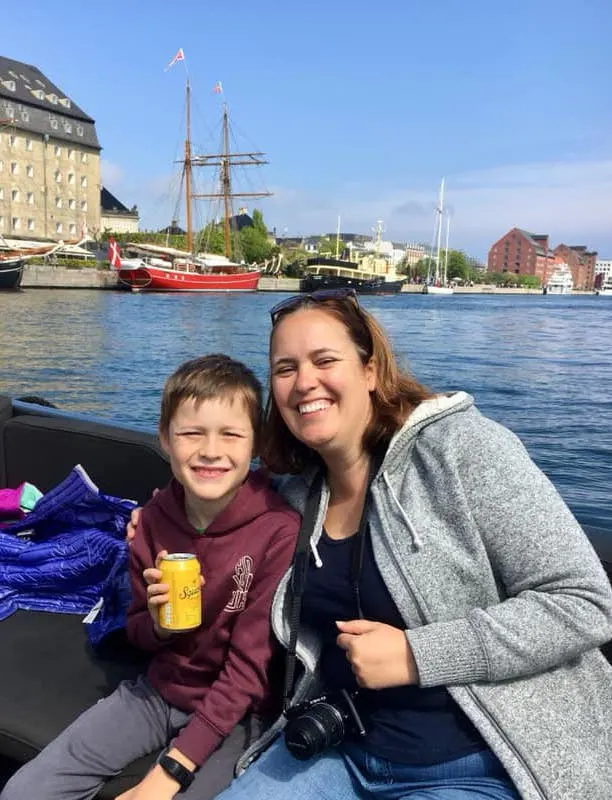
Other inspiring interviews with intrepid travelers:
Guinness World Record Climbers – Iain and Adam
Judging Tiramisu with Christina and Cynthia
Getting to All 63 National Parks – Brad and Grandma Joy
Phoebe Thomas’ Amazing Travel Stories
Coritta Travels with her Family
Jennifer Lloyd Talks about Travel to Volunteer for Animals
Morgan and Sage – Hiking in the Dolomites
Morocco Desert Hiking with Eva
Kirsten Discusses Travel with Kids
Mary Jo tell us about her book – Secret in Seattle
Marissa tells us about finding her Irish Ancestors
Worth Mentioning
Amanda’s Website: Not a Ballerina
If you enjoyed listening to these travel stories, we have more podcasts with fun stories that you might love:
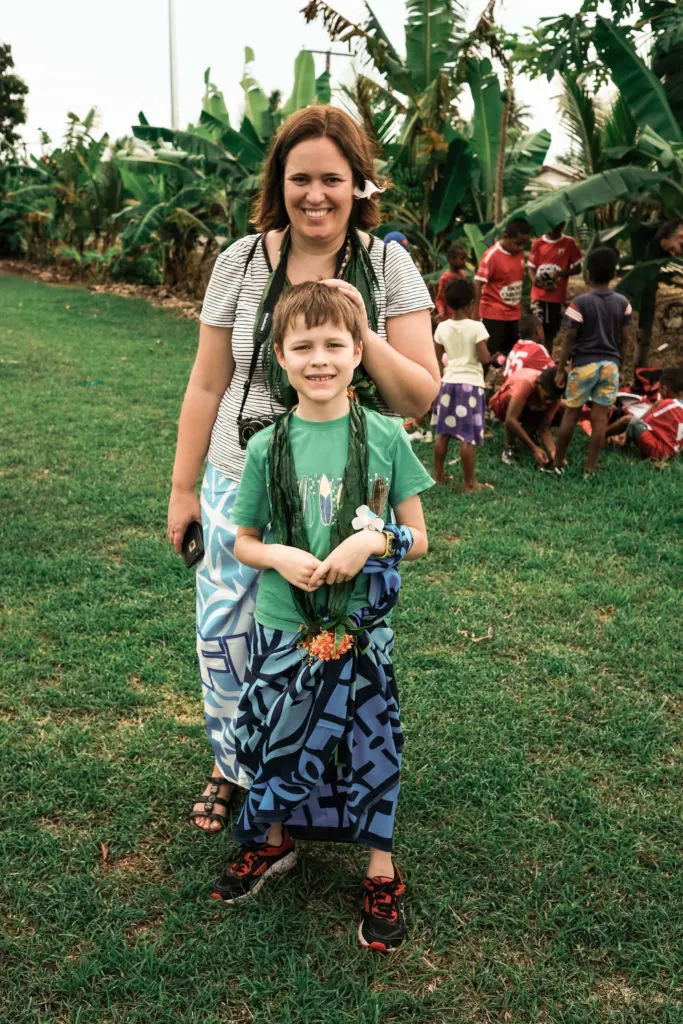
Join our Community
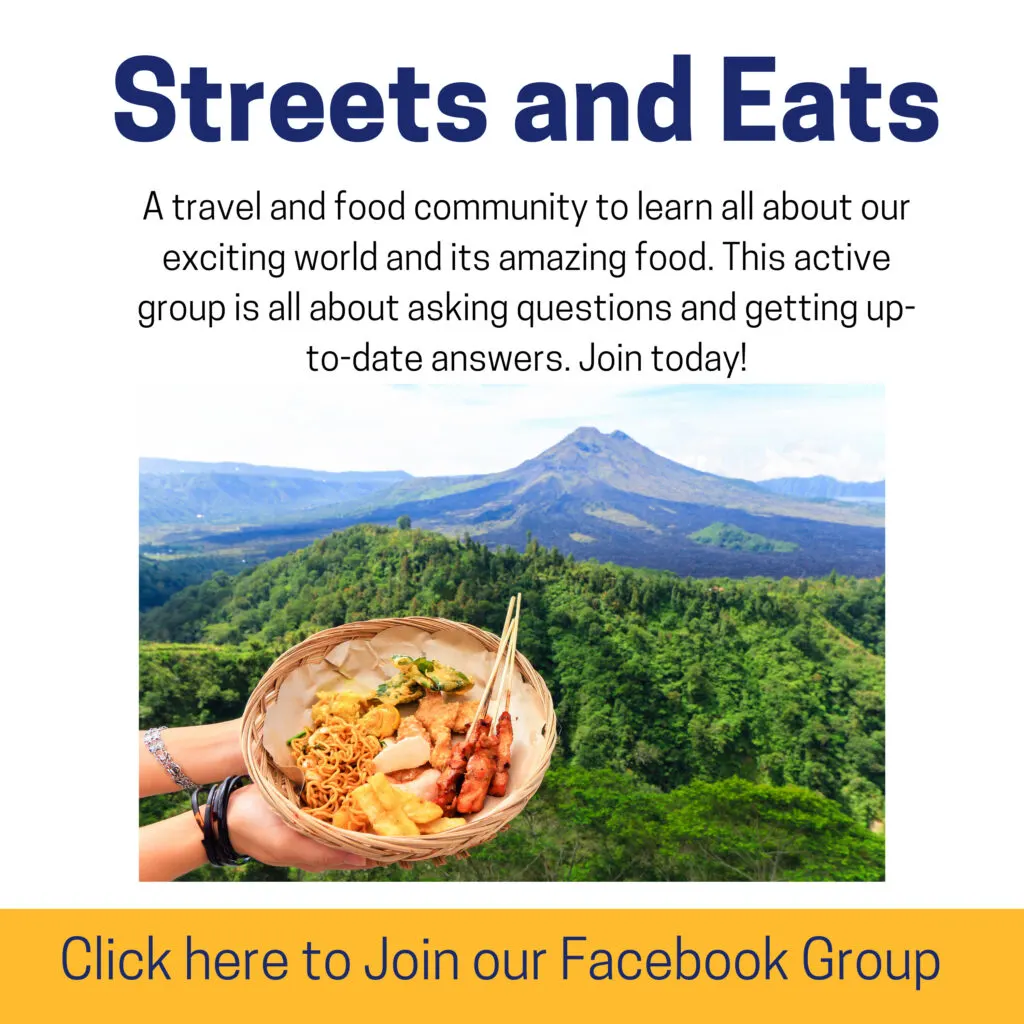
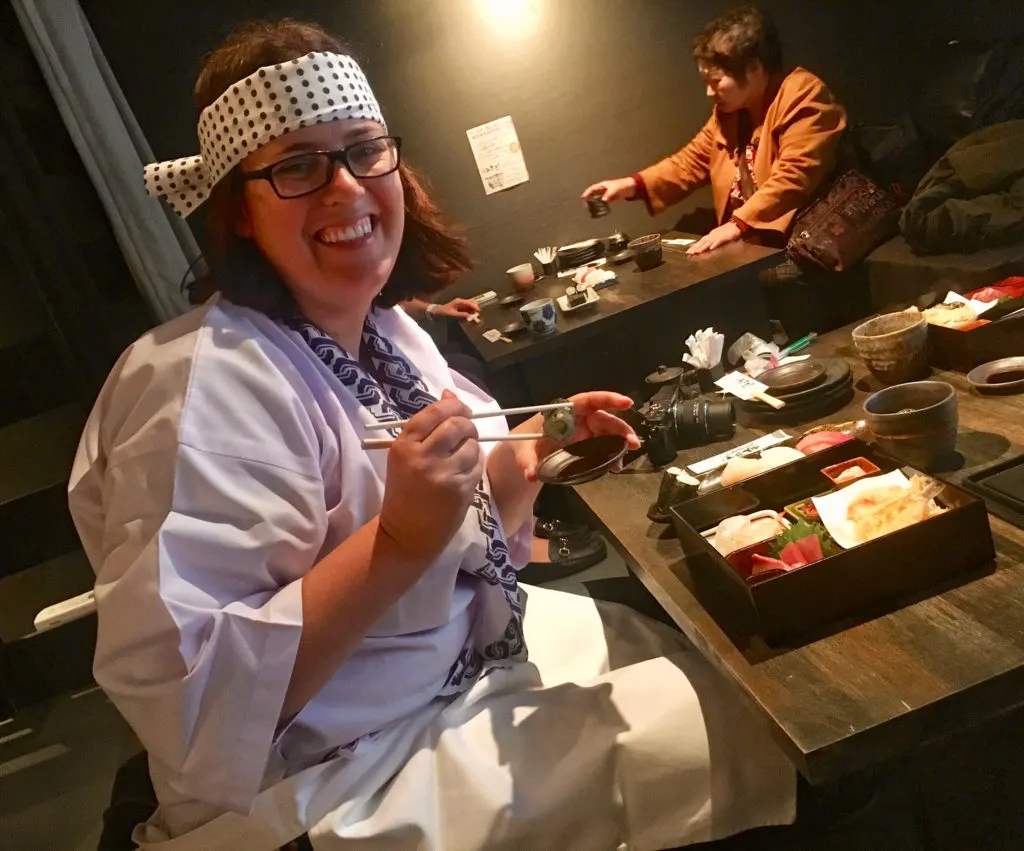
If you enjoyed Thoughtful Travel...
Full Transcript of Podcast
Amanda 0:00
All right, we’ve got Amanda from Notaballerina.com with us today. And we’re going to be talking all things travel. She’s really into thoughtful travel. So we’re going to kind of pick your brains about that. And I also see on your website that you do a lot of travel with your child so we’ll be talking about family travel too.
Jim 0:20
Welcome to Streets and Eats the travel and food podcast dedicated to taking our listeners to the sights, sounds and flavors of fascinating places near and far, both on and off the beaten path. We’re Jim and Corinne Vail and we’ve been traveling internationally and domestically together for decades, visiting more than 90 countries in all 50 states in the USA .We’ll share all of the local knowledge and food expertise we’ve gathered through years of living as expats in Asia and Europe, as well as traveling with family spanning multiple generations around the world. Join us each week for a new adventure.
Yeah, what exactly is the thoughtful travel idea? And where did it come from?
Amanda 0:56
Well, it sort of is something that I’ve been thinking about, really all my life by accident. And then about, I don’t know, seven or eight years ago, I’d been blogging for a long time, since 2005. And I’d lived abroad in a few different places, and come back to Perth, and I didn’t have as much, I wasn’t going to be writing destination kind of content anymore.
And what I’d often talk to people about, and started to write about a bit, was how much travel had changed me. So it started off being quite a self centered version of thoughtful travel. I lived abroad, and it completely changed, you know, like my, almost my whole personality and certainly the trajectory of my life. And so I kind of started off…that was the thoughtful travel initially. And then when I wanted to start my own podcast…I live in Perth. It’s the most isolated city in the world. We can’t travel frequently, especially these days.
Corinne 1:58
Except to Bali.
Amanda 1:59
Yes, exactly. Which is not really my favourite place because it’s full of people from Perth.
Corinne 2:06
I don’t think it’s the Perth people. It’s just not my style,
Amanda 2:11
I think because of the Perth people it’s become not your style. I reckon so. I’s a sad, sad case there, I think. But I kind of thought, “Okay, I really want to tap into more of this, how travel changes people kind of aspect.” And, you know, through my blogging, and living abroad, I’ve had a network of people all across the world who were willing to talk to me on my podcast. And so I thought, “Okay, well, it’ll be thoughtful travel.” So it became the thoughtful travel podcast.
And so I kind of started that without having a massive kind of philosophy other than I think travel is life changing. And then through talking to people and reading more over the years, and, you know, kind of diving a lot deeper into it, I’ve come to really think more deeply about why we need to travel more thoughtfully, and that brings in the non selfish, the non self-centered aspects as well. So you know, traveling sustainably, or traveling in a way that helps the community where we’re visiting, or, you know, all of these kinds of, you know, ethical issues as well, and lots of other kinds of tangents to being a thoughtful traveler.
So, it’s a really kind of all encompassing thing. But basically, at the heart of it, I think, is, when we don’t just kind of take a holiday, we don’t just go somewhere to spoil ourselves, but we go somewhere with a bit more thought to it, or sometimes a lot more thought, but at least a bit more thought. You know, what can I personally get out of this experience? Other than just relax? And what can I learn from it, that I can then teach other people? And what can I do that’s, you know, helpful or useful, or, I don’t know, in some way thoughtful when I travel? So just kind of, you know, stepping back and making it, I don’t know, a bigger part of a bigger experience in a way.
Jim 3:58
So having a little more intent to your travel than just going to see places.
Amanda 4:04
Yeah, not just taking items off a bucket list. You know, is it just because people, everyone, said we should see the Eiffel Tower so we’re gonna go there and tick it off? But, you know, think being thoughtful about what do I want to see? What’s interesting to me? What might I learn something from? What’s something that has a different impact or…? Lots of different ways to think about, you know, how you approach a thoughtful trip.
Corinne 4:26
So have dome some volunteerism, or is it more of a, like, I don’t know. Can you explain?
Amanda 4:37
Sorry, I personally haven’t done a lot of volunteer work because I do…well first of all, I just haven’t had super many opportunities. I only travel a few times a year, you know, outside of pandemic times, because I’ve got a child here in school and so on, and distance from Perth and also you know, volunteer tourism is fraught with difficulty. You know, trying to actually do something that really is effective. Itend to think that mostly an effective volunteer trip is something where you spend a long, much longer time somewhere where you actually have skills that aren’t available in the local community and so on. So it’s sort of something I’d like to do more of down the line when I’m, you know, when I’m able to travel for, you know, six to 12 months at a time again, that kind of thing. But I think what I’ve done more of, I’ve actually forgotten what the first part of your question was.
Corinne 5:33
Was that translated into volunteering? Or how do you translate that?
Amanda 5:40
Yeah, yeah. So instead, what I’ve done is, whenever we travel, and so I travel with my son who’s about to be 12. But you know, so we’ve traveled a lot. I’ve traveled a lot with him between the age of kind of five and you know, 10, or 11, is we kind of approach it thoughtfully. So I have this kind of structure, I suppose, where we think about being thoughtful before, during, and after a trip. So the before part is not just what people might think of like researching or planning, but also kind of starting to immerse yourself in things that are interesting to you about your destination.
So a couple of years back, we went to Denmark, in, in Europe. I always have to distinguish that; we have a town called Denmark here. So Europe. Yeah. So when I would say to people, we’re going to Denmark, it didn’t sound very impressive. It sounds like we’re just going a couple of hours away. So it’s always very confusing. So you know, Denmark is a very, you know, modern destination. It’s not something where, you know, we’ve been in the past, like Cambodia and places like that, where there’s obvious things that you want to learn about before you go.
But we went to Denmark, I thought, “Okay, well, what will we do?” And so we like, immerse ourselves in, like, you know, some Danish TV series, and I, you know, read some books about it. There’s a great book called “The Year of Living Dangerously”, where a British expat lived in Denmark, she still does, actually, because she loves it, and, you know, talks about all of these really intriguing aspects of Danish culture. And so we do that kind of deep dive into, you know, what we want to do there. And then when we’re there, we’re trying to be, you know, thoughtful in ways. Like, we rented bicycles instead of using a car. So we, you know, rode all around.
So that sustainable side of it, and we rented the bicycles from another company that we found that was actually kind of a social enterprise. And they were also using some of their profits to ship bicycles down to, I think, Mozambique, if I remember correctly, and then they would go travel to Mozambique, and they’re training locals there to be bicycle mechanics. And they’d set up all these, you know, people down there who were able to then earn a living out of this and, and so on. So, you know, just things like that, that you wouldn’t normally think about.
And then the after, the after the trip, thoughtfulness is kind of reflecting on you know, what did we learn about that? Or what do we want to know more about” Or, you know, even kind of adopting habits and ideas that we like. In Denmark, everywhere is candles, it’s, you know, the hygge kind of coziness kind of aspect? And so we will…we would quite deliberately sit down on a Sunday afternoon with a nice afternoon tea and light a bunch of candles and kind of be, well, hygge about it. Which, yeah, just to kind of, you know, it’s something, it’s a nice ritual to do sometimes. And so that’s kind of an example of, you know, I guess the whole gamut of thoughtful travel from from one kind of trip.
Corinne 7:58
That makes a lot of sense. I really liked the before, middle and after, like, during and after, I think that, that that’s key, you know. We’re both, Jim and I are, retired educators. So we’re always talking about reflections and our original website was, and still is, Reflections En Route, because reflecting not just about, you know, telling stories, or capturing images, but just reflecting on what you’ve learned, and how to improve that and be cognitive about how this is going to further you, and hopefully, people around you. So it’s really important. And I do believe, so I love hearing that you’re doing it with your son, because I do believe the earlier you start doing that, the better. It’s just, yeah, that’s the educator in me coming out.
Well, I mean, I’m obviously biased. But I think that a lot of his behaviors and how he’s grown up so far, have been really heavily influenced by all the travels we’ve done. So…
Oh, I have no doubt. We grew two daughters the exact same way. Yeah, we lived overseas. We’ve actually been married 38 years in February next month.
Jim 9:56
Is it that many? Wow!
Corinne 9:57
Yeah. And we’ve only lived in the United states for well, now nine of those.
Amanda 10:02
Well, that’s not much. Wow!
Corinne 10:04
Yeah, we’ve lived all our married lives with the kids growing up overseas and immersing ourselves in different cultures and trying to learn as much as possible. And just the exposure, the confidence, I mean, all of that is so important. I just, I think that they gain in so many ways that we may not even really recognize.
Amanda 10:26
Yeah, absolutely. I think just being aware of so many different kinds of people in the world and different languages. And, you know, like, certainly my son grew up not even just knowing that all of that exists without having to at some stage down the track realize, oh, people speak different languages. You know, he just always knew that from the moment that he could understand, that, you know, people spoke, I guess so. Yeah, those sorts of things, and, and just being able to be friends with people of many different cultures. And yeah, so many different…eating different foods, all of those kinds of things. And he’s, he’s a real fiend for kind of general knowledge and, like, geography facts and historical stuff. And, and I used to really pride myself on my geography skills, and quite often now, he’ll like quiz me over, you know, what’s the capital of so and so? And I’m like, “Oh, I know…” But I don’t know. And he’s right. It’s awful. But I’m sort of proud too.
Corinne 11:25
Yeah. It’s great for mom to be wrong sometimes.
Amanda 11:31
Yeah, absolutely.
Jim 11:33
He still has that, you know, that fresh elastic memory, so, and for us so many things that have come and gone.
Amanda 11:41
That’s exactly right.
Jim 11:43
It’s true. And we do talk about that a lot, with traveling with kids, is travel as early as you can with them. You know, for most people, it’s the fear of the unknown that keeps them from traveling. And for those kids who are lucky enough to have parents to drag them along, if you will, and get them immersed in it. That unknown no longer really exists, because that’s what they know now. There are other people in the world, there’s different food everywhere you go. There’s different languages. And that’s the expected now. So that’s really cool.
Amanda 12:18
Yeah, yeah, absolutely. I think that whole comfort zone stretching makes a big difference. Yeah.
Jim 12:22
That’s right.
Corinne 12:23
Absolutely. And just the fact that it’s normal. I mean, I grew up the exact same way. My mother was so into this, and I saw you did a lot of traveling as a child as well.
Amanda 12:33
Yeah. Yeah.
Corinne 12:36
So even though we asked you the definition of thoughtful travel, I know you came to that later. You didn’t start out with that. Because we know, I mean, that’s just not how it works. So one of our things that we like to find out is your personal evolution. Sure you were traveling with your family, but as you grew to be an adult, like, you know, how did you? How did you become the world traveler?
Amanda 13:01
Hmm, that’s a really good question. So I mean, as you said, I didn’t travel a lot as a kid, but when we traveled, it was a lot at once. So when I was nine, my parents took us to Europe for six months. So we bought a camper van in the UK and travelled around Europe for six months. So it was very, well we didn’t know it back then, but it was slow travel. It was definitely budget travel.
And, you know, we’d be staying in little caravan parks in suburban, you know, the cheapest parts of town in suburban areas. So, you know, we would get to know a little, local playgrounds and go to all the supermarkets. So it was very much that, you know, much more immersive travel compared to, you know, taking a tour where you, you know, whistle stop, you know, every night, it’s a different city kind of thing. So, I think that was the first part where I thought, “Okay, this is what traveling is. You move around slowly.” And, you know, you get to spend lots of time in supermarkets. I have so many childhood memories of my dad, miming different things in different countries in Europe trying to explain.
I remember in France, he’s trying to get some honey, and he’s like buzzing bees to try and explain he needs honey; and things like that. So I think that was the initial like, that’s what I thought travel was because that was my first experience. And then I was also lucky when I was a teenager, I was 14, and I was studying German in high school. And I spent a month in Germany on a school trip. So we were staying with different host families. Which is again, you know, much more immersive than the average trip. So I think that those early experiences kind of paved the way for me to think that that’s more what traveling is.
And then during my kind of late teens, early 20s, I again, didn’t have the chance to travel very much, but my mom moved to the US. In fact, she married an American and so we would go back and forth from there. And that was again, you know, much more immersive travel. And then I moved to Japan and so from there, I lived in Japan and Slovakia and Germany. And so, although it’s not traveling, in a sense, you know, living abroad is is like traveling, you know, full time. And so that was my, you know, my next experience. So I think, you know, it partly was by luck, because you know, the way that my parents could show us Europe was…that was the only way they could really afford to do it
And we have this thing in Australia, we have long service leave. So my dad had worked at a bank for well, by the end, I suppose 20 something years or more. And so he was entitled to have six months paid off work. So yeah.
Jim 15:27
I like that!
Amanda 15:28
Yeah, long service leave is amazing.
Corinne 15:30
That definitely doesn’t happen in the States.
Amanda 15:32
No, no, no, I think it’s really only Australia, maybe New Zealand, I don’t know, it dates back to kind of colonial times when you needed that long when, you know, British settlers were here. And they needed that long to be able to get back to England by boat and spend some time there and then come back again. And of course, we have never let that out of our workplace contracts.
So yeah, it’s not as good as it used to be. Yeah, I’m self employed. So don’t get me wrong. But, but loads of Australians still do. And you know, that’s one of the reasons that Australians often are, you know, taking longer trips around the world, because we have that, that capacity. So they weren’t ever going to take us on lots of, you know, overseas trips, because it’s so far from here. But that meant that we had that kind of slow travel experience as our first one. So, yeah, I think that kind of really paved the way to me, you know, becoming a thoughtful traveler.
Corinne 16:26
I love it. I love it.
Jim 16:28
Well, we’re both teachers. And that’s what got us, what allowed us to live in so many different countries overseas. I’m just kind of curious, what what were you doing that let you move to Japan?
Corinne 16:42
This is jet, right?
Amanda 16:44
Not jet, but I was teaching English. So at the time, back here in Australia, I had been working as an academic, and I’d kind of progressed, I just like, the year before I moved, I’ve got this kind of dream job, the dream job, I thought I would get to in my like, 40s. But I got it in my kind of… I was 24, 25. And so I loved the job. But I was kind of thinking, okay, but now what? Iwas kind of working towards this. And now I’ve got there and it’s fine, but I don’t want to do this stuff forever. And I had long wanted to leave Perth.
So when you grow up somewhere really isolated. Everyone wants to leave. And, and so really, I was just like anything we’ll do like I, I nearly got an opportunity to volunteer in the Solomon Islands through a government program, you know, I got accepted, and then you know, we’re about to kind of start the process. And then I actually can’t remember what happened, but the program shut down or something. So that was off the cards. I tried to move with my boyfriend at the time we’d moved to South Australia…anywhere, anywhere that’s not Perth.
We moved to Adelaide and he was retrenched a month after we arrived. So there was like a new CEO in the company and all these people were let go. So we moved back to Perth. And so then I saw, one day, an ad in the paper, you know, ithis was so long ago that that’s how we found these things, that they were interviewing for English teaching jobs at NOVA in Japan. Okay, this is good. And, you know, the pay seemed reasonable, it was still, you know, enough that we could still pay our mortgage back here and save some and travel.
And, yeah, this is like, you know, 2000. So, it was a long time ago. And, yeah, so I was like, “Okay, let’s do it.” And my boyfriend wasn’t super keen about teaching. I mean, I was working in the education sector. So that seemed, you know, a good fit for me, but he actually quite enjoyed it as well. And we moved on from there and taught Business English in Slovakia and in Germany after that.
So I actually came back to Australia and still taught for a couple of years before I moved into self employment. So yeah, I thought it’s such a good way to travel because you get to, you know, your job is to talk to local people. And as an English teacher, especially a lot of that was conversational English, your job is to talk to them about lots of different topics. I mean, nothing could be better and they’re much more open because they’re, you know, that’s kind of, that’s the role you’re doing in that hour, or whatever. You are meant to be talking about all kinds of things. And so, you know, I learned I mean, I often would go home and think I have learned way more today from my students than they learnt from me. But it was fabulous. I loved it. Yeah.
Jim 19:21
What a great way to immerse yourself in that culture too. Yeah, exactly.
Amanda 19:25
Yeah exactly. And if I was ever, like unsure about something, you know, or I saw something on my way home or whatever, I would know well tomorrow I’ll just ask my students and you know, I would get all sorts of explanations and learn anything I wanted to learn. It was wonderful.
Corinne 19:37
So where did you go in Japan and for how long?
Amanda 19:40
So we lived in Osaka for two years. So well, Osaka and then Nara, but I was teaching in East Osaka in a really tiny school in Higashi Osaka. And during that two years, of course, we did make the most of it and travel like the length and breadth. And I’ve been back a couple of times. I had to take my son back to Japan, of course, because I’d been raving to him about it for the first, I don’t know, seven or eight years of his life. He thought takeaway food equals Japanese food. He didn’t know about McDonald’s or anything else like. So we had to go back there. Yeah. So all in the Kansai area was where I was based, which is my favorite.
Corinne 20:19
And it’s really easy because there’s so much going on in that area. Our first time we lived in Japan, we lived in northern Honshu up in the Tohoku-ken. So it was really rural. What the good thing about that was, we loved taking our Japanese classes. And they love taking us places, like we went out to dinner with them. And we just did lots of karaoke. with them. It was great, because we really did have to learn some Japanese because we were in fishing villages. And I mean, sometimes you couldn’t even find a restaurant. This is how small these little towns were. So and then the second time we lived in Japan for two years, was actually right before we came back in 2020. And we were on the Kanto plane. So of course, there was tons to do. We were near Yokosuka.
In Kamakura.
And we lived in Kamakura, which is just the most beautiful place to live.
Amanda 21:28
Oh, that’s gorgeous. Yeah. Well, my second year, I moved to a little village outside of Nara. And we’re the only, well I thought at the time, we were the only foreigners there. I never saw another foreigner. But years later, when I blogged about it, like only you know, much more recently, I did discover an American who lived there at the same time, because he was like searching for the name of our little village, Amagatsuji. And he was like, “Oh my god, I lived there at the same time. How come we never met?” It was crazy. But I did. I learned Japanese through this fabulous system they had where there was a lot of basically housewives who weren’t working, they’d all been trained, you know, really thoroughly trained to teach Japanese as a foreign language. Oh, my goodness, I would go every Thursday morning. And it was you know, one on one tuition and for the cost of basically a little bit for room hire and fabulous green tea and sweets. And it was like the highlight of my week. And when I left I was so conversational but I’ve forgotten a lot now.
Jim 22:24
Oh yeah, a cultural connection that was just unbeatable because they would bend over backwards to try to like, explain things for us or introduce us to different things that weren’t really part of learning Japanese, but just a great, great opportunity. Yeah, we couldn’t find that in the Kamakura area, though. It was, I don’t know, too industrial or too institutional, I guess.
Amanda 22:48
I wonder. Oh, what a shame. Yeah. I miss Japan.
Corinne 22:52
Fond memories
At least I had learned some from living in the north so I wasn’t too worried about it. And then you were in Slovakia for…”
Amanda 23:01
So I spent just a year in Slovakia, it was great. It was 2003-2004. So it was before they joined the EU. But it was a really interesting time to be there. You know, lots of changes still happening. So I lived in Bratislava, and, and taught Business English. So I was mostly teaching in, you know, kind of Western companies who had, you know, relatively recently started up there. And so all my students were people who had kind of been thrust into these new roles.
You know, like I had people who’d been engineers under socialism, and now are marketing managers because no one had studied marketing. So no one knew anything about marketing. So they just had to take whoever wanted to do the job kind of thing. And, yeah, so it was, and they were just all very, very welcoming. And I loved it there. And the only reason really, that we didn’t stay longer there was because, obviously, the pay was pretty low at the time there. And it was actually really hard to travel much further than, you know, we would go to Vienna for the weekends. And yeah, you know, because it’s like, 40 K’s away or something. But also because I managed to get a job in Germany. And because of course, I’d studied German all through high school and university. So to work in Germany was what I’d really wanted. And it’s hard to do as an Australian.
Corinne 24:21
Yeah. We lived in Germany for gosh, I’ve, I think a total of like, 19 years, right.
Jim 24:28
Quite some time. Yeah. A long time.
Corinne 24:32
Yeah, on and off. Both our daughters in fact, were born in Germany.
Jim 24:37
Born in Germany, and both graduated high school in Japan.
Amanda 24:41
Oh, how fun. Oh, my goodness, what an awesome family.
Corinne 24:43
Yeah. Where did you live?
Amanda 24:47
So I lived in Heilbronn. So just north of Stuttgart in Badem-Wurttemberg. So yeah, so at the time, it was hard as Australians to get a job because they just would usually take people with EU passports. So they had to kind of advertise in the town to prove that there was no one else there who could do the job before they could hire us. It was a big rigmarole. But it was a funny little kind of industrial town.
It’s near the Audi factory, and lots of, you know, lots of automotive industry stuff. But it was a great place to live. And, you know, really central and I got to improve my German a lot, which was very important. You know, I got there and they speak, like the Schwabian dialect there. And the apartment I got was, we were the youngest people by about 50 years. It was just happened to be like a group of, you know, all the other apartments were retired elderly people. And so their dialect, they, they had very thick dialect. And so the first couple of weeks, I was like, I thought I knew German quite well. And now suddenly, I like I didn’t know. I don’t understand what any of these people are saying. It was crazy. But over time that did improve. Thank goodness. So yeah,
Corinne 26:05
And you had all those Omas and Opas.
Amanda 26:07
Well, actually, I have to say they weren’t very friendly. Those omas and opas. They’re very conservative in that little town. They used to leave anonymous letters in my letterbox whenever I did something wrong. And I’m not like, I’m actually a real rule follower. But like, if you don’t know all the rules, then you can’t follow them. And I will do things like, early on, I washed my car in the carpark which is what you would do here. And of course, I now know fully well that you can’t do that because of the wastewater and the soapsuds going into the drains, etc.
So you have to go to the right place. But I didn’t know, nobody had told me. You know, there’s a lot of rules in Germnay. And nobody had told me and the neighbors didn’t come outThey knew I was Australian, and they knew I’d just arrived. But they didn’t come out and say, “Oh, actually, we need to go and do this at this place down the road.” They wrote me anonymous letters and things like that. So it was, yeah, it was kind of an interesting cultural introduction there. But a lot of other people were fabulous. And it was all fine. So yeah, and I still loved living in Germany. It was great. And yeah, did lots of good traveling.
Corinne 27:12
And how long were you there?
Amanda 27:12
About three and a half years. So yeah, my…well my now ex husband…I met him there. And so my son is half German. And then we moved back to Australia. I was reluctant, but at the time, he wanted to move back here to get some better work and, and all in all, I’m grateful. I’m grateful now to be living in in Western Australia over the last couple of years. I do love being near family and stuff as well. But I really still really miss Europe.
Corinne 27:48
So do we, I mean, we love traveling anywhere. But we lived in Europe for so many years. And Japan, they are probably our two favorite places. Turkey, I love Turkey. Ah, so many Ppaces. We’ve lived all over, it’s been great.
Jim 28:04
Well, speaking of the rules of the neighborhood, we lived in the Netherlands for a year and a half for two years. And that’s where we did all our rule breaking. You know, they had all these different rules for how you did your window curtains and blinds. In the morning, window curtains had to be open halfway and your blinds had to be up. And during the day, your blinds could be down but your curtains had to be open. And then at night, I don’t. I’m sure I’m getting all of that wrong, because we never really did figure it out.
The fact that there’s even a rule for that is just hilarious.
Corinne 28:41
And it was so important that the neighbor told the landlord who then came to my school principal. And she pulled me in the office so he could explain the rules of curtains in the Netherlands.
Amanda 28:57
Oh, my goodness, you got told off by the boss.
Corinne 29:01
By the boss.
Amanda 29:03
That is hilarious. I’m sure at the time it was not hilarious. Oh no. It would be quite bewildering at the time, I’m sure.
Corinne 29:16
It was so different and we had lived in Germany. So we thought we were like, you know, golden.
Amanda 29:21
I would have thought you’d be fairly well prepared. Yeah.
We knew how to recycle, we knew all that stuff.
Yeah, that’s right. The recycling can be tricky. But yeah, once you’ve got the hang of it. Yeah, a lot of rules. I actually really like rules. And I’m a real rule follower, but it’s just sometimes hard to learn all of them. So when you’re new somewhere.
Corinne 29:42
Well you’re bound to make mistakes if you live life. That’s what I always say.
Jim 29:50
In some ways, maybe that’s part of the thoughtful travel. Being out there and opening yourself to make those mistakes and to learn those things about where you’re at.
Amanda 30:00
Yeah, absolutely. I mean, I think when things go wrong, whether you make mistakes or things go wrong, or you get lost or any of those things, they’re always the things that you end up telling the stories about. So they’re obviously the things we reflect on more, and we learn something from it, or it’s entertaining or whatever. So I think that being open to being wrong is a really important part of traveling. Otherwise, yeah, if we want to be definitely right and doing things correctly all the time, we really need to just stay home.
Corinne 30:29
And that’s boring.
Jim 30:32
Well, like you said, it turns into where you’re just checking things off of the list, because you know, I need to go see this, I need to go see this, I need to eat that I need to do that. But if you never make the mistakes and meet the people and get a chance to be invited to somebody’s house for tea, then it’s just never gonna happen.
So what are some other? What are some other ideas, I guess, that you can share? For finding those thoughtful things that can really immerse you, we always look at, like UNESCO intangible cultural heritage, as those are a really great place to start.
Amanda 31:12
That’s a great idea. Yeah, yeah.
Corinne 31:15
Although they’re difficult to fnd and do.
Jim 31:18
They can be, yeah.
Amanda 31:19
it’s true sometimes. Yeah, yeah. But that’s an awesome list. There’s some such fascinating things on there. So that’s a great idea. And the other thing I just tend to do is, like deep dive into, into books, or blogs, or, you know, media, YouTube, or whatever, from people who have lived there, or who lives there now, or, you know, or certain travelers where you know, that they’re kind of traveling in the way that you think is, you know, the way you want to travel. So I definitely, I never go, i never go looking or researching with the idea of I, you know, want to find all the really cool things here, I just kind of take a really meandering path.
And then when if something catches my eye, that’s where I’ll go deeper. So to go back to the case of Denmark, I was fascinated by the education system there, because I’ve watched a Netflix drama, where they showed how, you know, the main character was a school teacher, and that they taught the same kids for like, eight years, or something like the teacher went up, and things like that. And, you know, like, compared to here, it’s like, so different. And, you know, the kids wee calling their teachers by their first name, and all these.
And you know, I’ve got a kid, and I’m interested in education. And so all of that was really fascinating to me. And so that’s where I then started, you know, researching more. And then, when I was looking for accommodation, we found an Airbnb where the host was a teacher. And so that’s fabulous. Because, you know, it was like, we’re, you know, we’re staying in the home with them. And so I got to, you know, she was, she was so lovely, because I did feel like sometimes when my son told me, “You can’t ask so many questions And I was like, “Oh, maybe I’ve gone too far.” And I’ve been kind of, you know, in the interrogation mode. But afterwards, you know, an Airbnb, they give a review. And so she said, “…and Amanda was,” something like, you know, “… so lovely. And so interested in my work, it was great to talk to her.” I was like,” Oh, phew, she didn’t feel interrogated.” It was great. My son did start the eye rolling thing when we, you know, bump into her as we’re leaving, and he like, “Oh, no, here we go again. I’m ready to go out and do something.” But yeah.
Jim 33:27
It caneally go both ways ith that, you know, where you get the host you never are going to see. And that’s the way they want it. And then you get those that are like, “Hey, come on in, sit down. I’ve got some prosciutto and let’s have some prosciuto and do some shots. And you never really know what to expect. Unless, unless, read the reviews.
Amanda 33:48
Although you can find in the review, sometimes you can see what they’re like, but you never know for sure. So that host used to bring us freshly baked bread rolls every day, which was amazing. So yeah, it was really nice. So to answer your question, I just tend to deep dive, you know, the internet is an amazing place, I just tend to follow my nose and, you know, start deep diving into some topic that intrigues me.
And then from there, you’ll find all kinds of, you know, recommendations or places or, I mean, I’m lucky because I run a podcast, I get to talk to people all the time. And in fact, even part of the reason I went to Denmark in the first place was I’d interviewed an American who was living in Copenhagen, and she told me all these amazing things and about a particular art gallery, which sounded just so intriguing. And so things like that I’d already known, that was even part of the reason to go in the first place. I’d started to learn more about it.
So yeah, I think just that kind of, yeah, research immersion, but not with a goal to find all the things but just to follow your nose and see what’s there. I think that’s one of the important parts of being a thoughtful traveler. A lot of people have this mindset when they travel is I might never come here again. I have to do all the things. And that’s just like such an unsatisfying way to travel because first of all, some of the things you’re not even gonna like, and you could probably tell that in advance, and it means you’re probably doing everything pretty quickly. And you know, ticktick, and it just doesn’t give you the opportunity to just meander and go, you know, find things that are particularly intriguing or interesting for you.
Take it slowly. And, I mean, one of the things I love when we travel is to get a regular place, like a regular coffee shop or a regular bakery. Even if you’re only there for a week, but like, when we were in Copenhagen there was a local little, like, supermarket, a place where they had the best, like, you know, baked goods and, and we would go there every day for our like, evening snack, we’ll go and pick it up. And, you know, we got to chat to people and just the fact that you can walk into a very foreign supermarket and feel very familiar with it already because you’ve been there a few times before. All of that is just, I don’t know, I just really love the feeling that you get by, you know, finding some regular places. So, I know I had a guest on my podcast once who said that the definition of slow travel is when the guy at the coffee shop knows your order when you walk in. So you have to go there enough times that they figure out…they know what you’re going to order. And I thought that was a great way to define slow travel and also therefore thoughtful travel, I think.
Jim 36:21
We’ve done several of those type of cultural exchanges like that. And one of them was to Lithuania, where we stayed with a sister school. And several of the teachers from our school went to their school. And we did some, some mini lessons with their kids. And just spent, I think, two weeks with them. And that was a great opportunity.
Amanda 36:50
Yeah, it’s a fast track to inside life, isn’t it when you do something like that.
Corinne 36:55
That’s right. And then they came to our school too. And we hosted them. Those kinds of exchanges, I can’t say enough about them. I’ve done plenty, I’ve hosted plenty. We grew up with the Girl Scouts. So I hosted Japanese Girl Scouts to the Aleutian Islands and British girl scouts to the Aleutian Islands. And we’ve just done all kinds of things. And so that’s how you really learn things that you wouldn’t otherwise learn. Whether a song or something that you eat or a game, or, I mean, there’s just so much.
Like one time we were in Africa. and we were staying at the campgrounds that you go around. We’re not luxury travelers. We are always meeting local people. And this one girl was just sitting with us at the campfires. We’re watching the sunset. And I was asking her. Here’s the interrogator bit right? Asking her aboutwhen she was growing up. And she goes, Well, we weren’t allowed to go outside at night, and especially if the yard wasn’t swept. And I said, “What?”
She says, “Oh, yes, the most important thing to do in any African yard is to sweep it all the time, because that’s where they get rid of the snakes and the bugs.They would just sweep. And it’s of course, and it makes total sense. Yeah. You sweep and I’ve got a picture of a yard because we’re sitting in one and it’s a dirt floor. You know what I mean? And I’m thinking you sweep this all the time. And it just makes sense. That and it’s just kind of one of those aha moments where like, well, of course you did.
Jim 38:45
Well, and then we’d be driving through villages, and we’d see people sweeping their yards.
Amanda 38:49
And then you know why? Yeah, exactly. Yeah.
Corinne 38:52
It was such and important part of growing up. I just thought that was fascinating. Just things like that. To me that’s what ravel should be about. Learning things. And who cares what year the Eiffel Tower was built?
Jim 39:05
You can look it up if you really want to know.
Amanda 39:06
That’s, that’s the thing. All of those things are factual things you can look up whenever you want. But those more emotive kind of you know, curious things that are everyday to someone else but not everyday to us all of that. It’s much harder to learn about that. And, and it’s so interesting and I love those, all of those little simple everyday cultural differences that nobody even realizes that it’s a unique thing until they’ve got a foreigner there to talk to about it. And you might say, “Why do you sweep the yard all the time?” And yeah, I love it. That’s absolutely my favorite part of travel, finding out those kind of quirky and interesting differences because I think the other part of travel is it proves to us that we’re all very, very much the same.
Corinne 39:52
All the same. Yeah, though, I have learned that the less you have in many countries in the world, you’re still just as happy as I am with too much stuff. Because, I mean, we’re traveling in places like India where, I mean, they live in this little hut. And all they have is this little box of their own belongings that’s four inches by six inches long. And what do they do? They open that box and they find something for you and give it to you out of their meager belongings. I mean, to me, that’s it just really, that’s just one of those things. And I’m not just saying India, there are plenty places we’ve been where we’ve sat on that dirt floor and had tea, as Jim was mentioning earlier, with the family and, and realizing that, you know, gosh, we’re spoiled.
Jim 40:48
We are. But at the same time, like you said, we’re all the same at heart, too. We all want to share what we have, and, you know, help other people understand where we’re coming from. Everybody wants to do that.
Amanda 41:03
Absolutely. Yeah. Like I think there’s a lot made of how different everyone is, you know, different ethnicities, different religion, all of this stuff. But when you get down to just having a chat with people, we are, you know, at heart very, very much the same. So, yeah, when I lived in Bratislava, I had a very close friend, or made a close friend who was like born just a week after me. So we’re very, you know, almost exactly the same age. But of course, she’d grown up under socialism, and I had not. And we were so very similar in so many ways, like we went swimming together. We love to swim for exercise. We were both chocoholics, and we’d go to the chocolate cafe and things like that.
And I would often forget that there was, you know, that there was any particular difference in how we’d grown up. But I’ll never forget, when I moved away, we were both very, very sad. When I moved away, that was, you know, was that was almost the only reason I’d say we were very close friends. And it was heart wrenching to leave her. But I knew that I would see her again. That was a given for me that that would happen. We were moving to Germany, and then, you know, we’re still gonna be in Europe, at some stage it would happen, etc. But of course, her mindset growing up was that you can’t, you know, you don’t have that freedom of travel
And I didn’t really, I didn’t appreciate that at the time. And then it was only, It wasn’t even very long, maybe five or six months later that my company in Germany sent me to a conference in Vienna. And so I said to my friend in Bratislava, hey, I’m going to be in Vienna that weekend. Let’s find a way to meet up. And so she had a friend in Vienna, so she came over and stayed with a friend, and we went out for dinner and got to catch up. And, and she said to me, then, “When you left, I thought I would never see you again.” And she really believed that because of, you know, her differences in how she’d grown up.
And it was just heartbreaking to think that she’d felt that way. Whereas for me, it was, yes, I wish I was still going to be living opposite you. But you know, I’ll see you again. And of course, we’ve caught up, I don’t know, half a dozen times since in various places. She came to visit me in Germany eventually. And I’d been back and she was in the Czech Republic, we caught up and you know, we’re still in touch. But, you know, she really thought she would never see me again. And that, you know, that was kind of that, oh, it just felt really heartbreaking. And so it’s funny, you know, we’re all the same. And we have just these little differences that we don’t even know sometimes. But yeah, I love but I still love learning those parts about you know, about people around the world.
Corinne 43:20
One thing that Jim and I have found that works really well is to try and take cooking lessons. And cooking lessons are thankfully becoming more and more popular around the world. Although I would put the caveat on there that the more private the lesson, the more of course, time you’re gonna have alone with that person. But you get someone in the kitchen, and you start cooking with them. And you’ll find out all kinds of information, because you’re stuck there together.
Anyway, we’re in Prague one time. I think this was our very first cooking lesson, maybe our second and in Prague in the Czech Republic. Her family, her grandmother had been interned in a camp because she was Jewish. But when she got out, she didn’t ever tell anybody she was Jewish again. Her family didn’t even know she was Jewish. Till they had just found out that year. Her grandmother was dying and on her deathbed, basically, she said, this is a whole part of your history that you didn’t know about.
Amanda 44:31
Oh my gosh. Wow.
Corinne 44:33
I mean, how poignant is that?
Amanda 44:37
I couldn’t keep that secret for so long. And for you to hear about it in a cooking lesson. Like to have that. Yeah.
Corinne 44:43
Yeah, in her apartment. And it was just, I mean, things come out when you’re sharing food and just hanging out, that wouldn’t normally happen. And so we found that to be a really good way when we travel around the world to try and seek those out. It’s a way that when you’re only there for a couple of weeks, maybe it can, you can get that piece of, you know, part that you’re just not going to get unless you have slow travel. I mean, we’re lucky that we’ve traveled and lived in countries. So we have plenty of those experiences, but I crave them. So I’m always looking for ways to connect.
Amanda 45:21
I agree, I think it’s a way to kind of fast forward a relationship because, you know, you are sort of stuck together for a few hours in a kitchen. And it’s similar if you have like a private walking tour or something like that, you know, there’s lots of different experiences these days where you can, you know, if you do a bit of research first and figure out what’s you know, what’s going on, it’s not just some, you know, big, really touristy outfit or something. But there’s lots of ways where you can get those kind of, I don’t know, sounds awful to say, captive situations and people who are really keen to talk to you and yeah, yeah, so I agree. I’ve had a few of those kind of experiences myself, and it’s a great way to get to know something unique and interesting about the local culture or just about a local person, which is fascinating in itself.
Corinne 46:07
Absolutely. Okay. Well, I knew we would just have plenty to talk about.
Amanda 46:15
Yeah, I could go all day.
Corinne 46:17
We obviously could too. Well, is there anything you want our audience to know about you or where to find you or anything like that, that we can help you out on?
Amanda 46:32
Yeah that’d be great. So anyone who wants to hop over for another, something to listen to just come look up the Thoughtful Travel podcast, and the show notes and all of the other stuff in my old blog posts and other stuff is, all of that, is at Notaballerina.com.
Jim 46:48
Alright, thanks for listening to this episode of Streets and Eats. If you liked what you heard, please show us some love. Hit the like button and leave us a review. Maybe even subscribe so you don’t miss any future podcasts. Also, we’d love it if you joined us on our Facebook private group, Streets and Eats, where we just have an ongoing conversation about all things travel. Ciao for now.
Podcaster Bios for Jim and Corinne: Jim and Corinne are a married couple who love everything travel. Having met and married in Germany, they’ve never stopped. Along the way, they have raised two kids, visited over 90 countries (including every country in Europe), and have plenty of stories and travel tips to share. Read more about them on our About page.

